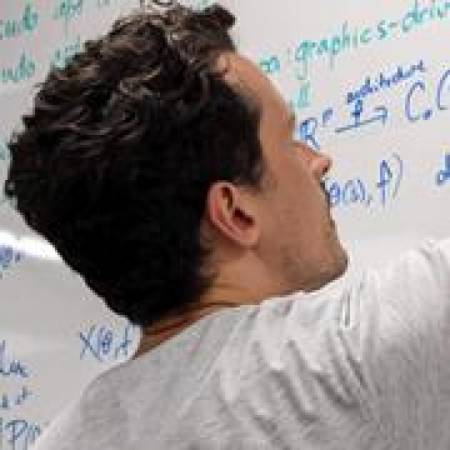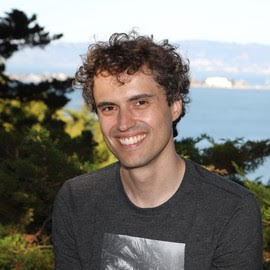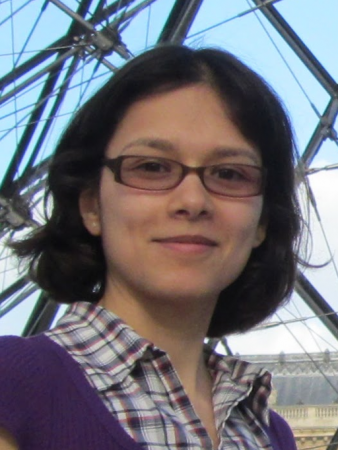Seminar
Towards more effective remote execution of exploration operations using multimodal interfaces
Abstract: Remote robots enable humans to explore and interact with environments while keeping them safe from existing harsh conditions (e.g., in search and rescue, deep sea or planetary exploration scenarios). However, the gap between the control station and the remote robot presents several challenges (e.g., situation awareness, cognitive load, perception, latency) for effective teleoperation. Multimodal [...]
Learning Visual, Audio, and Cross-Modal Correspondences
Abstract: Today's machine perception systems rely heavily on supervision provided by humans, such as labels and natural language. I will talk about our efforts to make systems that, instead, learn from two ubiquitous sources of unlabeled data: visual motion and cross-modal sensory associations. I will begin by discussing our work on creating unified models for [...]
Multi-Sensor Robot Navigation and Subterranean Exploration
Towards a formal theory of deep optimisation
Abstract: Precise understanding of the training of deep neural networks is largely restricted to architectures such as MLPs and cost functions such as the square cost, which is insufficient to cover many practical settings. In this talk, I will argue for the necessity of a formal theory of deep optimisation. I will describe such a [...]
Towards Interactive Radiance Fields
Abstract: Over the last years, the fields of computer vision and computer graphics have increasingly converged. Using the exact same processes to model appearance during 3D reconstruction and rendering has shown tremendous benefits, especially when combined with machine learning techniques to model otherwise hard-to-capture or -simulate optical effects. In this talk, I will give an [...]
Learning Representations for Interactive Robotics
In this talk, I will be discussing the role of learning representations for robots that interact with humans and robots that interactively learn from humans through a few different vignettes. I will first discuss how bounded rationality of humans guided us towards developing learned latent action spaces for shared autonomy. It turns out this “bounded rationality” is not a [...]
Motion Planning Around Obstacles with Graphs of Convex Sets
Abstract: In this talk, I'll describe a new approach to planning that strongly leverages both continuous and discrete/combinatorial optimization. The framework is fairly general, but I will focus on a particular application of the framework to planning continuous curves around obstacles. Traditionally, these sort of motion planning problems have either been solved by trajectory optimization [...]
RE2 Robotics: from RI spinout to Acquisition
Abstract: It was July 2001. Jorgen Pedersen founded RE2 Robotics. It was supposed to be a temporary venture while he figured out his next career move. But the journey took an unexpected course. RE2 became a leading developer of mobile manipulation systems. Fast forward to 2022, RE2 Robotics exited via an acquisition to Sarcos Technology and [...]
Enabling Self-sufficient Robot Learning
Abstract: Autonomous exploration and data-efficient learning are important ingredients for helping machine learning handle the complexity and variety of real-world interactions. In this talk, I will describe methods that provide these ingredients and serve as building blocks for enabling self-sufficient robot learning. First, I will outline a family of methods that facilitate active global exploration. [...]
Understanding the Physical World from Images
If I show you a photo of a place you have never been to, you can easily imagine what you could do in that picture. Your understanding goes from the surfaces you see to the ones you know are there but cannot see, and can even include reasoning about how interaction would change the scene. [...]









